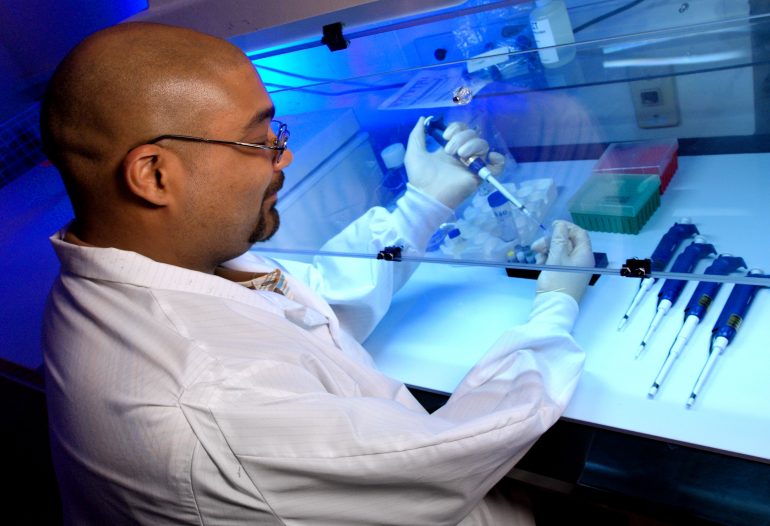Table of contents
Tick testing: Not recommended
Ticks can harbor a number of different microorganisms. Some of these can be transmitted to humans and cause disease.
For Lyme disease to develop, a particular type of tick in the Ixodes genus must contain the bacteria Borrelia Burgdorferi and be typically attached for 36-48 hours or more for transmission to occur. These ticks are also called deer ticks or black-legged ticks.
After removing a tick, CDC, other American experts, the government of Canada, and European experts strongly recommend against tick testing for diagnosis of infections.
Since in endemic areas only about 2% of tick bites result in Lyme disease, a positive result on a test for pathogen DNA still means that infection is highly unlikely.
Additionally, the accuracy of tick testing is unknown.
Tick testing for children
When it comes to kids, the American Academy of Pediatrics agrees with other experts:
Testing ticks removed from animals or humans for infectious pathogens is discouraged, as it is not diagnostically informative and may be expensive.
Tick identification: Recommended
However, experts do recommend identifying the tick, possibly with the help of a physician, entomologist, or other expert. For example, if the tick is a dog tick, Lyme disease can be ruled out because only Ixodes ticks carry Lyme disease.
See also:
CDC: Tick ID guide
CDC: Surveillance maps
LymeScience: Major tick-borne infections and the ticks that carry them
Free tick identification
TickEncounter at University of Rhode Island has a web site called TickSpotters that can help you identify ticks. You can even submit a photo of a tick, and a scientist will identify it for free.
There is also free tick identification for residents of Maine, Connecticut, and Michigan. The Midwest Center of Excellence for Vector-Borne Disease at University of Wisconsin-Madison will identify ticks submitted from residents of Iowa, Illinois, Michigan, Minnesota, and Wisconsin.
For US Department of Defense personnel and their dependents, the MilTICK program offers free tick identification and testing.

Recommended Tick Testing labs
To reiterate, experts strongly recommend against tick testing for diagnosis of infections.
However, one reason to test a tick is scientific curiosity. UMass Amherst’s TickReport has a comprehensive database of submitted ticks—including detected pathogens and location—which may be useful for surveillance and scientific research.
If interested in having a tick tested, we generally recommend a university-based non-profit testing lab such as:
- UMass Amherst: TickReport.com
- UConn: Connecticut Veterinary Medical Diagnostic Laboratory
- East Stroudsburg University: Tickcheck.com
- University of Maine: Cooperative Extension: Tick Lab (Maine residents only)
- University of North Texas Health Science Center: Tick-Borne Disease Research Laboratory (Texas residents only)
- Army Public Health Center: MilTICK (US Department of Defense personnel and their dependents only)
Additionally the state of Vermont sponsors a citizen science project called the Vermont Tick Tracker, which crowd sources information about ticks in Vermont.
Labs Not Recommended
We recommend against patronizing IgeneX, ArminLabs, BCA-Lab (also called InfectoLab), Ticknology, Geneticks, and the lab of Vett Lloyd at Mount Allison University.
Resources
CDC: Tick bite: Guidance for Patients | Clinicians
European Society of Clinical Microbiology and Infectious Disease: Tick tests for the detection of Borrelia are not recommended
WFYI Radio: Tick Tests Often Inaccurate Indiana Experts Say
Infectious Diseases Society of America, American Academy of Neurology, and American College of Rheumatology: 2020 guidelines for the prevention, diagnosis, and treatment of Lyme disease (Which diagnostic tests should be used following a tick bite?)
Polish diagnostic experts: [STANOWISKO] Badanie kleszczy (Position statement on tick testing)
Apteekkari: Punkkitestien tarve kyseenalainen – tässä syy (The need for tick tests is questionable – here’s the reason)
RIVM: Vragen en antwoorden Tekenbeten en Lyme | FAQ about tick bites and Lyme disease
Updated July 30, 2024